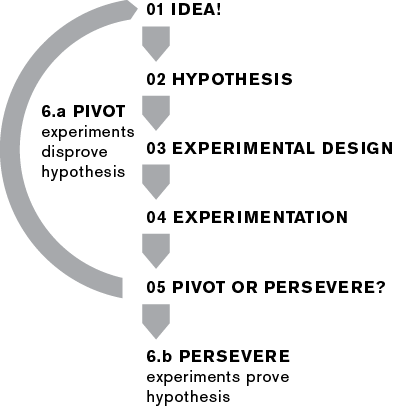Last week I was invited onto the Alumni Panel at the University of Westminster to discuss my experience as a graduate and share my advice with other students. I gladly said yes knowing that I will have the chance to interact with people that like picking each other’s brain!
I tried to be rather concise about what I have done along the years and shift focus to them. Coming from an environment where 9 out 10 individuals surrounding you plan to have their our startup, I asked the audience to raise their hands if they intend to run their own businesses in the future. I counted 5 unsure pair of hands, well that’s a promising start I say!

The Q&A and networking session made me understand where their uncertainty came from. At least three students in the audience asked the same question, possibly phrased in a different way but searching for the same answer – “Where do I start? What do I do next if I’ve got an idea?”
I immediately smiled because these are really smart, ambitious people raising the right questions! I had to provide a short answer given the context, but I want to share with you all how my approach of practising entrepreneurship has changed over months. Can I just say that what you are about to read here is not a rule written in stone nor a step-by-step guide to becoming successful? No doubt there are a dozen out-there, but how can you rely on them? Your success highly depends on you and your execution, and I am pretty sure each and everyone of us is unique.
For convenience, I will focus on two main questions, but I encourage everyone to ask more in comments. I will make sure to add a list of publications that can help you understand these concepts. So here we go:
1. I don’t have an idea, but I know I want to be an entrepreneur. Where shall I start?
There are a few ways you can come up with a brilliant idea just by paying more attention to the world around you. You can simply ask yourself “What am I passionate about?” or “I have a lot of experience in X, how can I create something new?”.
Some decide to merge their dreams with passions and pursue them till they build what they have always wanted. For Elon Musk his love for space and making a difference in this world by sending humans to Mars led him start SpaceX. Yes, he heard the phrase “you’re-insane-to-be-trying-this” so many times, but it doesn’t mean he gave up.
Probably Musk and his almost-impossible-to-achieve-ambitions are not the best example here, but what I am trying to say is that an idea could emerge from your own hobbies or problems. If you are still not sure about it, explore the US market and see what are the hottest startups and the latest trends there. Do your research, join AMAs, talk to serial entrepreneurs and find a scalable idea that you can bring into your own market.
Sometimes this is considered the best approach. You have a business model which already works there and you just need to replicate it and make some adjustments, just like playing with lego bricks and pieces!
Check out CB Insights website (it’s not free, but you can subscribe to their newsletter instead and receive really powerful stats and up-to-date info)

2. Actually, I do have a business idea, what shall I do next?
That’s all good, now you have to try to go “lean” and either validate or kill your idea. I know, it sounds a bit daunting, but during this experiment you almost wish to jeopardise your project to avoid waste and bigger losses later on.
Let’s just say you are passionate about food and your best friend has a deli selling sandwiches and takeaway. You’ve spent quite some time with them so you got to learn more about this industry.
A. You start with leap of faith assumptions that you make about your idea. They don’t require much evidence, it’s something that you rather felt or observed e.g. I believe that most food outlets like my friend’s deal with unfilled capacity during off-peak times.
B. Then you start creating your hypothesis. If I do X, then Y% of customers will behave in way Z. In other words, I come up with a solution e.g. online market place to connect whoever is around my friend’s area to his discounted food during off-peak times, then I will get him 5 new customers per week and perhaps 40% will become repeat purchase.
C. You will continue with real-life experiments always observing people’s behaviour and questioning why you get those answers and what actually happened.
What kind of experiments can I do?
- Customer interviews
- Open questions on Quora/Reddit/LinkedIn/Facebook
- Survey
- Pre-orders including video mockup
- Ad tests/ landing pages (QuickMVP)
- Non-digital version of the value proposition
- Explainer video
- Use others’ customers
- Relabel others’ products
- Organise meetups
- Engage through Twitter, medium, blogging
- Ask people to describe their experiences
- Show mockups
D. Sounds like fun! You should actually try to do more of these and repeat the whole cycle till you start getting the same answers again, and again. This means you get closer to validating your idea and there is a real problem on the market after all.
 I would say that a business idea has all the potential to succeed as long as it has a well-defined purpose. There is no need to reinvent the wheel to run a healthy and prosperous business, but trying to solve a problem or alleviating a pain point instead should be the main target.
I would say that a business idea has all the potential to succeed as long as it has a well-defined purpose. There is no need to reinvent the wheel to run a healthy and prosperous business, but trying to solve a problem or alleviating a pain point instead should be the main target.
I think what’s truly important to understand at this stage is the startup methodology which is all about avoiding waste. You start with cheap and quick experiments to test the problem-solution fit and as soon as you get a green light you move on.
I changed my approach too, running short and fast cycles of experiments and breaking down the vision into its component parts. Identify which hypotheses to test first, the characteristics of the target market (beachhead segment), and learn how to interview the early adopters by asking the right questions (read the Mom test).
If there is one thing I have learned over the years it’s that good things are rarely accomplished alone. Success often hinges on getting the right advice or support from the right people. Despite all the struggle you go through to achieve your goals, it’s these ups and downs that will make you a successful entrepreneur.
If you are up for the challenge…
HERE you can find the Lean Startup, the Mom Test and a few other publications to open your eyes and help you grasp these notions – Happy Xmas 🙂
- 5 Innovative Tools and Untapped Platforms to Help You Ace Your Finals - May 1, 2017
- StartUp2017 – How to start a food business - January 16, 2017
- The Lean Start-up Series – From ideation to the “AHA” moment - December 8, 2016

Thank you for sharing the useful information